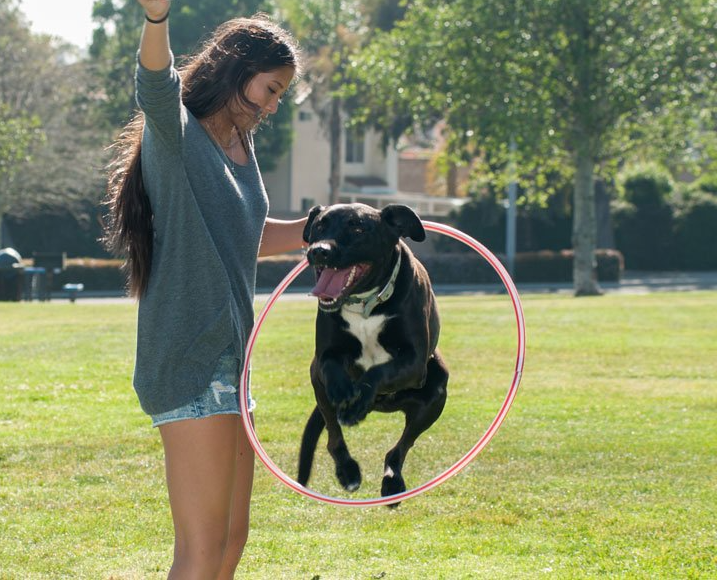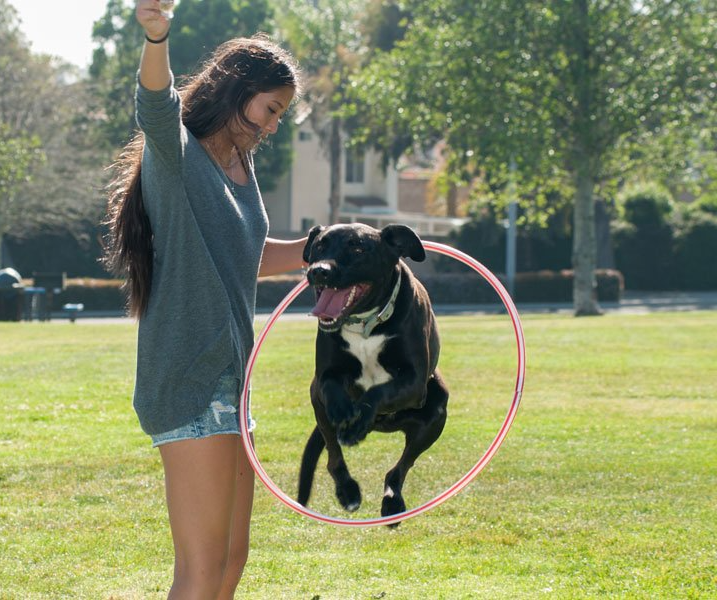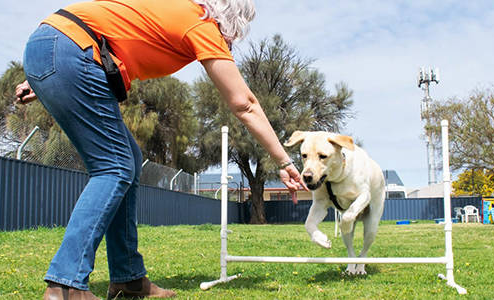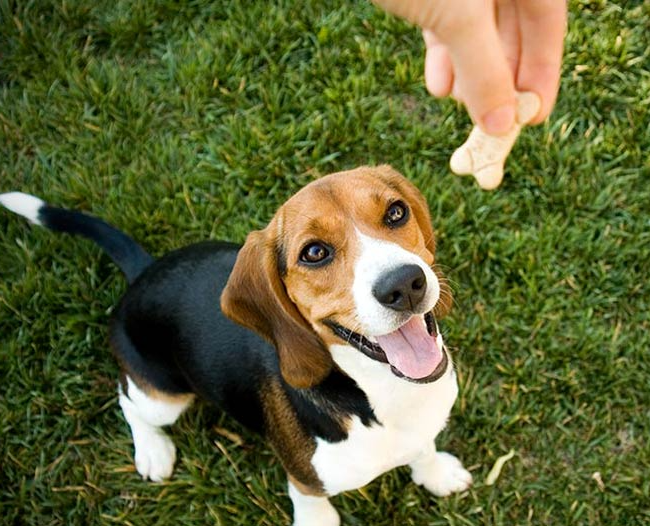Positive Dog Training: Setting Good Expectations
Healthy Expectations for Dog Training Corpus Christi
If you feel discouraged or even disappointed during training sessions with your dog, you may be setting expectations that are too high or simply unrealistic for both them and yourself. Regardless of what level of training you're at, it's important to set achievable goals and expectations.
An indication this may be happening is you find yourself often frustrated when your dog isn't doing a trick or behavior you're certain "they know". Dogs don't do things or forget cues to intentionally manipulate or embarrass us in front of others when we want to show off their training. If you're asking them to perform an action and they don't obey, the circumstances of the situation have likely adjusted to a level beyond your dog's current capabilities. If you've mostly only trained and practiced at home and you attempt to demonstrate their skills in a busy area, chances are they may not listen the same in this new environment because you haven't worked them up to being able to focus in a situation with that amount of distraction. In this scenario, they are either struggling to focus, or the reward is not of high enough value for them with this set of environmental factors. Rather than becoming frustrated, remind yourself it's just a sign of room for growth in this area and work to help your dog achieve success despite this new variable.
Another reason your dog may not accomplish the task requested of them is if they haven't been taught it yet, or at least not fully. It may sound obvious, but sometimes- because we feel so connected to our furry friend- it can be easy to forget that they can't read our mind. This accidental expectation often happens when we have multiple dogs in our home and can sometimes forget that even if we taught a specific command to one dog, it doesn't mean the other ones have learned it. If you ask them to perform something and your dog doesn't know what to do it can be frustrating, but it's crucial to not expect them to know things they haven't been taught directly.
Speak With A Dog
Training Expert
Speak With A Dog Training Expert
Thank you for contacting us!
We will contact you shortly!
Please try again later.

Healthy Expectations for Dog Training Corpus Christi
If you feel discouraged or even disappointed during training sessions with your dog, you may be setting expectations that are too high or simply unrealistic for both them and yourself. Regardless of what level of training you're at, it's important to set achievable goals and expectations.
An indication this may be happening is you find yourself often frustrated when your dog isn't doing a trick or behavior you're certain "they know". Dogs don't do things or forget cues to intentionally manipulate or embarrass us in front of others when we want to show off their training. If you're asking them to perform an action and they don't obey, the circumstances of the situation have likely adjusted to a level beyond your dog's current capabilities. If you've mostly only trained and practiced at home and you attempt to demonstrate their skills in a busy area, chances are they may not listen the same in this new environment because you haven't worked them up to being able to focus in a situation with that amount of distraction. In this scenario, they are either struggling to focus, or the reward is not of high enough value for them with this set of environmental factors. Rather than becoming frustrated, remind yourself it's just a sign of room
Speak With A Dog
Training Expert
Speak With A Dog Training Expert
Thank you for contacting us!
We will contact you shortly!
Please try again later.

for growth in this area and work to help your dog achieve success despite this new variable.
Another reason your dog may not accomplish the task requested of them is if they haven't been taught it yet, or at least not fully. It may sound obvious, but sometimes- because we feel so connected to our furry friend- it can be easy to forget that they can't read our mind. This accidental expectation often happens when we have multiple dogs in our home and can sometimes forget that even if we taught a specific command to one dog, it doesn't mean the other ones have learned it. If you ask them to perform something and your dog doesn't know what to do it can be frustrating, but it's crucial to not expect them to know things they haven't been taught directly.
Realistic Expectations For Dog Obedience Training
An important factor in maintaining this positive dog training mindset is coming up with realistic expectations. That doesn't mean they have to be low, but you have to assess the speed they learn each behavior (they may pick some up more readily than others), the amount of time you can dedicate to regular training, your experience or training skill set combined with their level of training, age, and temperament. Puppies tend to have less focus than adult dogs because their energy level is high and they're still learning the basics of life and their relatively new home. It's okay to aim high, but if you want your dog to be well-trained and responsive it will require more than one day a week; you'll need to put in the work and training time on a daily basis. Even short, focused sessions will go a long way if they are done routinely. If you're not sure if your goals are realistic, talk to a professional dog obedience trainer to discuss how you may need to adjust them to be fair to both you and your dog.
Most importantly, don't make training a negative experience for your dog. Training should make them feel engaged and they should be confident afterward, not discouraged. Make it something they look forward to by going at a pace where they can be successful and not raising the bar too quickly. If they feel like they can't get it right or make you happy, they might feel confused or frustrated and lose their enjoyment in it. Focus on the basics and fundamentals rather than getting too excited and rushing through them to avoid learning gaps. Work up slowly so they can follow, and always end on a positive by asking them to do a command you're certain they've mastered- even a simple one like "sit"- so the session can end with praise and a treat.





